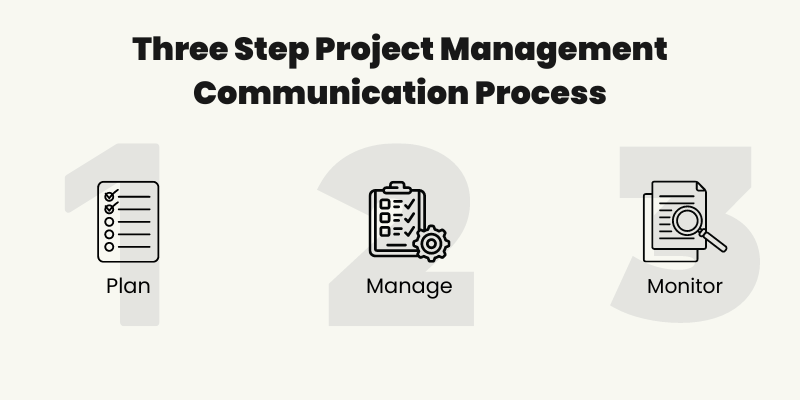
Findings into the financial impact of ineffective communications on businesses are startling!
£109,103,490 pounds is at risk of being wasted for every £809,862,0002.00 spent on a project! Just as concerning is that a further 56% ( That’s £60,512,700.00 of £109,103,490.00) is also at risk of being wasted due to ineffective communication.
These are the quantifiable costs of ineffective communication for businesses!
And yet, despite these figures and the larger problem they point to, there still exists a lack of effort by organisations to effectively communicate critical project information.
This creates problems for project teams tasked with delivering projects successfully which often proves challenging without adequate support for effective communication.
The businesses that do get effective communication right, however, complete more projects successfully and become high performers as a result.
This post will help project managers, and anyone tasked with delivering projects – to understand the role, and best practice of effective communication in project management, to mitigate potential problems arising from a lack of communication.
Why Effective Communication Is Important in Project Management?
A typical project involves a number of stakeholders and parties who expect to be kept in the loop about the project!
Project managers must decide how they will update, coordinate, and foster relationships with these various parties; this requires project management communication skills to facilitate effective communication with stakeholders and align people associated with the project.
Understanding the Three Step Project Management Communication Process

Just as steps to achieving goals and milestones are planned, so should project communication. We can think of it as a three-step communication process that includes:
Planning Communication
Planning assists project teams to understand exactly how relevant information will be passed along to reach the appropriate people and systems.
As a process, planning communication for project management will include defining:
- The primary communication tool or software that’ll house your team’s knowledge, documents and content created during the project.
- A workflow outlining how the information created at each stage of the project is conveyed to where it is needed.
- The project staff responsible for conveying project information at every stage of the project.
Managing Communication
The manner in which project managers manage project communications determines whether the project succeeds or not!
The managing stage is a process of gathering, creating, storing, disseminating and retrieving information relevant to the project. Here, a document called the communication management plan, which contains details of the communication needs and expectations for the entire project is utilized.
More on communication management plans… they can be as detailed or as broad as they need to be; they specify the people responsible for each format of communication ( so think emails, reports, etc); and can be written to sound formal or informal depending on the intended audience.
Monitoring Communication
In this final step of the project management communication process, we focus on controlling the flow of information, chiefly, to keep stakeholders updated on the progress of the project so they know what they need to – when they need to.
Monitoring takes into account the different pieces that comprise project management communications such as personnel performance, feedback reports, progress on schedules and information related to costs status and forecasts.
To avoid miscommunication, project managers must use the monitoring stage to manage communication channels and ensure stakeholders and people involved with the project are constantly updated.
What Are the Key Factors in Project Management Communication?
Each project management communication plan should be underpinned by a sound strategy to deliver on defined objectives. Next, we highlight four factors to centre your communication plan around.
Objectives
Project objectives state what you plan to achieve at the end of your project. For effective communication, messages sent to internal or external teams should specify the objective of the communication is, for people to understand what to do next.
Audience
The audience ( internal and external partners) are the people who receive messages sent out during the project lifecycle. One key factor to consider is that messages conveying meaning must be easily understood for people to act on.
Message
Is the information that is conveyed. It impacts communication through project teams delivering specific information to stakeholders in a way that’s often formal but focuses on important and business-critical information.
Channels
Here, we define our communication channels to be used to keep stakeholders updated on project progress and changes.
How To Create a Project Communication Plan
A communication plan in project management is a document that outlines how communication will happen between project teams and stakeholders.
Its goal: is to keep everyone involved with the project informed, and clearly define people’s roles and responsibilities.
Steps to follow to create a project communication plan:
Step 1
Identify the stakeholders of the project, including team members, clients, and other individuals who will be affected by or involved in the project.
Step 2
Determine the communication needs of each stakeholder group. This will help you understand what information each group needs, how they prefer to receive it, and how often they need updates.
Step 3
Develop a communication schedule that outlines when and how the information will be shared with each stakeholder group. This should include the specific channels or methods that will be used.
Step 4
Identify the key messages that need to be communicated throughout the project, and develop a plan for sharing these messages with the stakeholders.
Step 5
Create a system for tracking and managing communication throughout the project, including a plan for addressing any issues or concerns that may arise.
Step 6
Review and update the communication plan regularly to ensure that it remains relevant and effective as the project progresses.
Project Management Communication Is Critical!
You should now have a better understanding of the role of effective communication in project management. You should also understand why communication is the foundation of any successful project.
A key takeaway from this post is communications – when properly executed, all members of a project team to a common set of goals, actions and strategies that coalesce to create organisational success.
For project managers and organisations alike, it is imperative to mitigate the financial risks (mentioned in the introduction) incurred as a result of a lack of effective project management communications and planning.
Are You Interested in a Project Management Career?
We are Manager-Training.
We equip ambitious people with cutting-edge skills and knowledge through our accredited courses and qualifications which prepare them for jobs in today’s technology-driven industries and companies.
Thinkers. Doers. Disruptors and change-makers of tomorrow choose us to help them become career qualified and deepen their knowledge and skills.
We offer accredited courses in Business Analysis, Project Management, CMI Management & Leadership, Change Leadership and MSP.
Our learning approach is personalised. You are supported by professional tutors and mentors whose job is to help you succeed and become a qualified professional.
Build your professional skills. Become a qualified Project Manager, Business Analyst, Team Leader and Manager with Manager-Training.
Contact our friendly and knowledgeable consultants to answer any questions you may have.